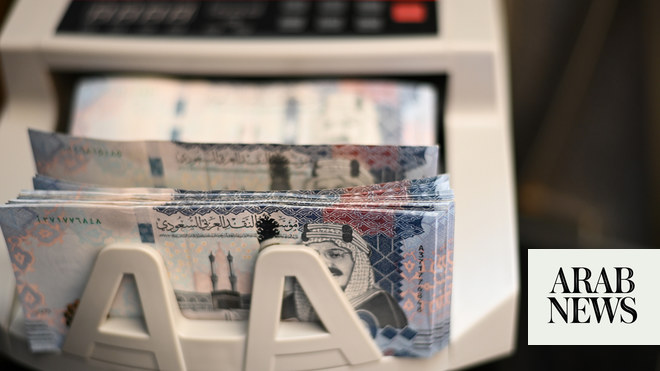
RIYADH: Saudi Arabia reported a budget deficit of SR30.23 billion ($8.06 billion) for the third quarter of 2024, a decrease of 15 percent compared to the same period last year, according to the Ministry of Finance.
This brings the total deficit for the nine months ending in September to SR57.96 billion, remaining in line with the ministry"s previous forecasts.
Government revenues increased by 20 percent compared to the same quarter last year, reaching SR309.21 billion. Expenditures also rose, up 15 percent to SR339.44 billion, resulting in a budget deficit of SR30.23 billion.
Oil revenues constituted 62 percent of total government income, amounting to SR190.87 billion — a 30 percent increase during the period, according to the ministry. Non-oil revenues represented the remaining 38 percent, totaling SR118.34 billion, reflecting a 6 percent rise.
Within the non-oil revenue sector, taxes on goods and services accounted for 62 percent, reaching SR73.94 billion, which signifies a 5 percent increase during this period.
The most notable growth occurred in “other taxes,” which surged by 69 percent to reach SR5.31 billion. The ministry indicated that these primarily include taxes paid by businesses, such as corporate zakat, along with other unspecified taxes.
Compensation for employees accounted for the largest share of government expenses, representing 41 percent at SR138.63 billion, reflecting a 6 percent increase during this period.
Expenditures on goods and services made up 24 percent, totaling SR82.69 billion, with a year-on-year rise of 15 percent.
Capital expenditures on non-financial assets constituted 14 percent, reaching SR48.15 billion, marking a 17 percent increase. Notably, subsidies grew significantly, rising by 10 percent to reach SR7.44 billion.
According to ministry data, the government"s current account balance surged by 429 percent during this period, reaching SR76.7 billion.
In contrast, government reserves declined by 4 percent to SR390.08 billion. Additionally, public debt at the end of the third quarter totaled SR1.16 trillion, with 60 percent of this amount representing domestic debt.
In September, the ministry revised its estimate for the 2024 budget deficit to SR118 billion, marking a 49 percent increase from earlier projections. This adjustment reflects the Kingdom’s ambitious expansionary plans and ongoing investment in key projects aimed at bolstering economic growth and diversification.
Despite a backdrop of oil production cuts implemented by OPEC+ countries, which typically strain revenue streams, the Kingdom has managed to see a rise in overall revenues.
This resilience showcases Saudi Arabia’s strategic approach to navigating global market challenges while pursuing its Vision 2030 objectives, including infrastructure development, technological advancement, and the enhancement of public services.












